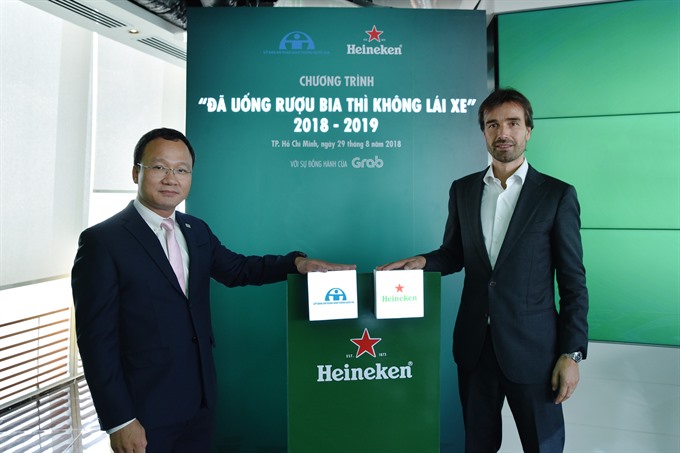Heineken Viet Nam and the National Traffic Safety Committee began the “When You Drive, Never Drink” campaign in HCM City for a second year on August 29.

Heineken Viet Nam and the National Traffic Safety Committee (NTSC) began the “When You Drive, Never Drink” campaign in HCM City for a second year on Wednesday.
Khuat Viet Hung, vice chairman of the NTSC, said: “We are very pleased to pursue our partnership with members of the business community such as Heineken to drive behavioural change when it comes to drink driving.
“Last year’s campaign had a positive impact on this issue. I strongly believe that together, we will be able to drive more robust change this year.”
The company has promised to earmark at least 10 per cent of its media spending of around VND14 billion (US$610,000) a year on persuading Vietnamese consumers not to drink and drive.
It will join hands with its distributors and launch a series of flagship outlets in Ha Noi and HCM City that will carry reminders and assist consumers who choose to not drive after drinking.
It will soon partner with Grab to provide consumers, regardless of which brand they drink, with free round trips to these flagship outlets.
Last year the campaign had reached over 8.3 million consumers, conveying responsible consumption messages.
When launched in the UK, the initiative caused a 50 per cent reduction in the number of people drinking and driving at some outlets. The company hopes to cause a similar impact in Viet Nam.
Behavioural change is an ambitious goal which requires long-term commitment and early intervention. Heineken has partnered with NTSC to organise workshops for road safety trainers, who are at the forefront of promoting the “When You Drive, Never Drink” message.
Alexander Koch, commercial director of Heineken Viet Nam, said: “This year, by applying our global and local expertise in consumer insights, we can provide well-rounded and innovative solutions that allow us to cause impactful changes and inspire consumers to make better decisions.”
In April Heineken brought the Perfect F1 experience for the first time to Viet Nam and used this event as a platform to communicate the message to consumers. The event reached 50,000 people in person and millions more online. — VNS





